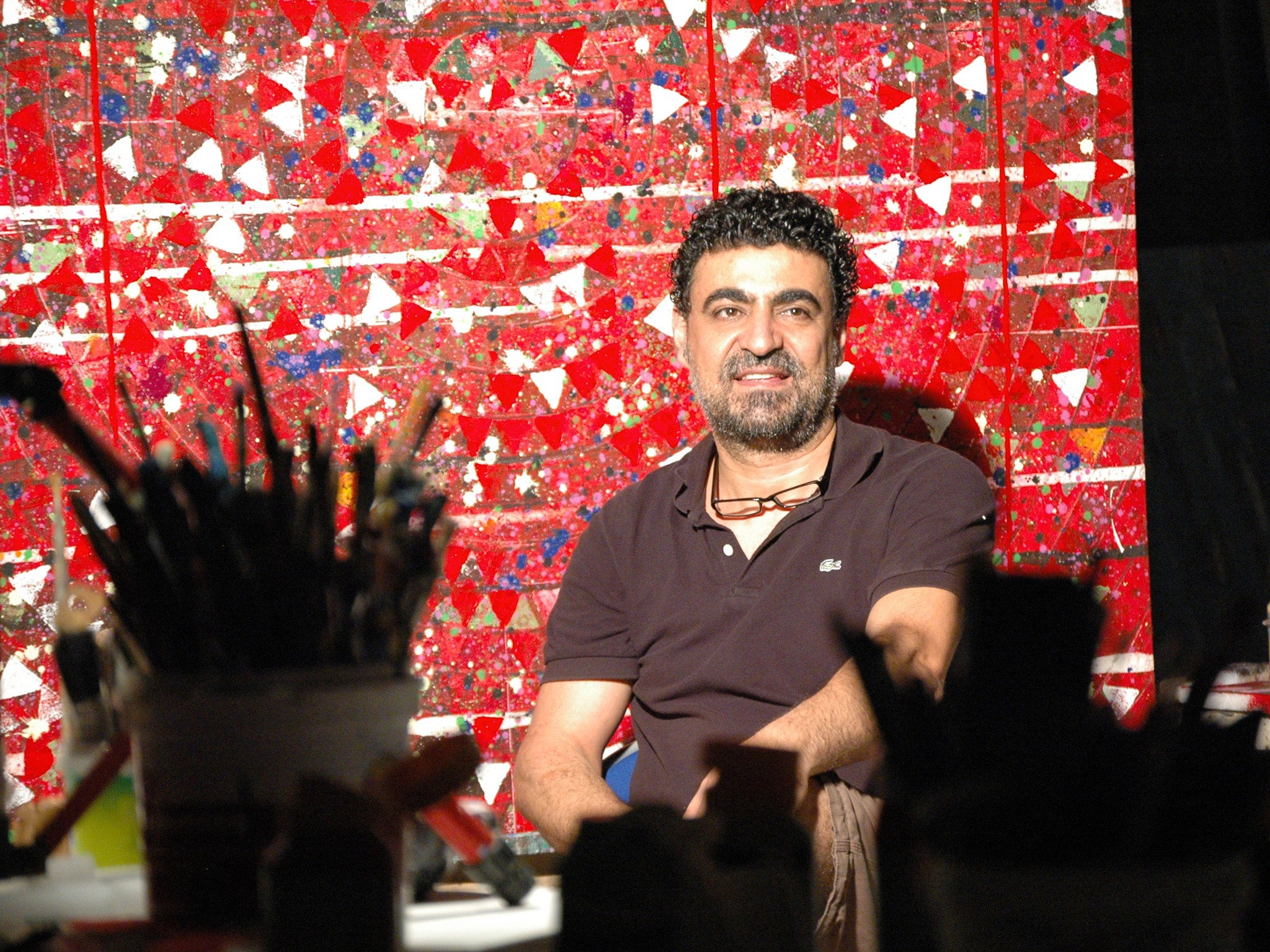Barred from his own UK exhibition: Syrian artist denied visa
Home Office officials informed Thaier Helal that they were 'not satisfied he [was] genuinely seeking entry to the United Kingdom as a business visitor'

A prominent Syrian artist has been refused a visa to travel to Britain for the opening of a major exhibition of his works in London.
Thaier Helal, widely regarded as one of the war-torn country’s most prolific talents, was due to attend a high-profile exhibition of his works at Ayyam Gallery in London's New Bond Street on 22 January but has been stopped by the Home Office from coming.
The 47-year-old neo-expressionist, whose recent works depicting the Syrian Army received international acclaim, had provided references, bank statements and a letter from the University Of Sharjah where he is a lecturer but was informed of the decision to block his entry last week.
Despite having been granted visas to mainland Europe on Schengen visas on numerous occasions in the past, Home Office officials informed Mr Helal that they were “not satisfied he [was] genuinely seeking entry to the United Kingdom as a business visitor. In addition [they were] not satisfied that [he] intend to leave the United Kingdom at the end of [his] visit.”
Mr Helal, who is originally from An Nasriyah in southwest Syria, but is now based in the Emirate of Sharjah, said that he was devastated at the decision.
“I just don’t understand why I have been refused entry to the UK, I am just an artist who wants to be at the opening of my first solo exhibition in Britain. It means so much to me – it is really a career achievement,” he said.
“I truly believe that the only reason preventing me from being allowed into the UK is my Syrian passport, it was my belief that Britain was an open society which embraced creative freedom and the promotion of cultural exchange.
“All I want to do is show my art to an international audience and have my voice heard in some small way on behalf of the Syrian people.”
The exhibition is due to go ahead without Mr Helal being in attendance but he has appealed the Home Office’s refusal decision.
Khaled Samawi, founder of Ayyam Gallery said he was incredulous at the decision to ban Mr Helal and voiced concern about what he sees as a growing trend of visa refusals for the Middle East’s leading artists.
“We are facing enormous problems sending our Syrian artists for exhibitions and arts related events abroad at the moment, it is such a great shame as this a highly tumultuous time for our country and I believe that it is so important for their message to be heard by international audiences,” he said.
“It’s truly an uphill struggle and if this keeps happening our talented artists will continue to lose out on the opportunities afforded to citizens of other countries, limiting there careers and crushing their motivation… it’s just not right.”
A Home Office spokesman said: “We do not routinely comment on individual cases. All visa applications are considered on their individual merits and in line with the immigration rules.”
Mr Helal is just the latest figure from the arts world to be refused an entry visa by the Home Office.
In 2013, Gaza-based husband and wife writers, Ali Abukhattab and Samah al-Sheikh, were due to talk about their writing at London's ICA and Kazakh artist Karipbek Kuyukov, who was born without arms, said he was denied permission to enter Britain because he could not give fingerprints.
Other artists have experienced difficulties in leaving their own countries to go anywhere at all. Last year, Mr Helal's Ayyam Gallery stablemate , Palestinian Khaled Jarrar, was stopped from leaving the West Bank to attend an exhibition in New York. At the time, he described the "humiliation" he experienced at the hands of Israeli soldiers, who he claimed called him “zevel", "garbage," in Hebrew.
Subscribe to Independent Premium to bookmark this article
Want to bookmark your favourite articles and stories to read or reference later? Start your Independent Premium subscription today.

Join our commenting forum
Join thought-provoking conversations, follow other Independent readers and see their replies